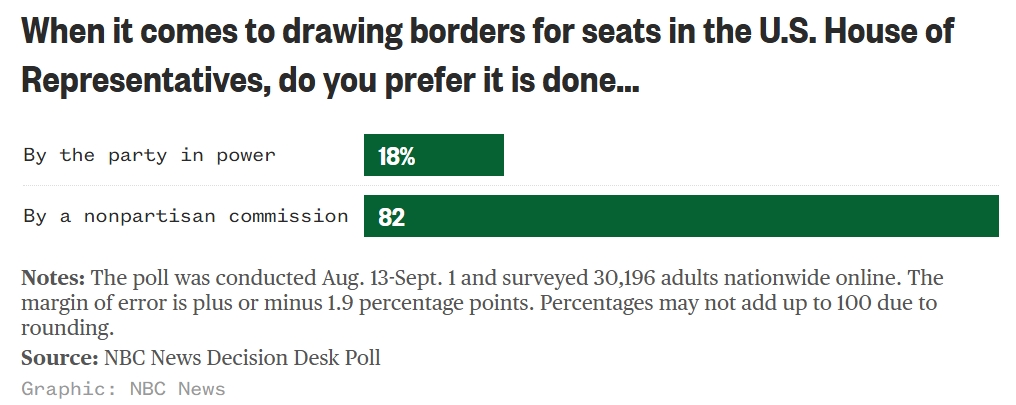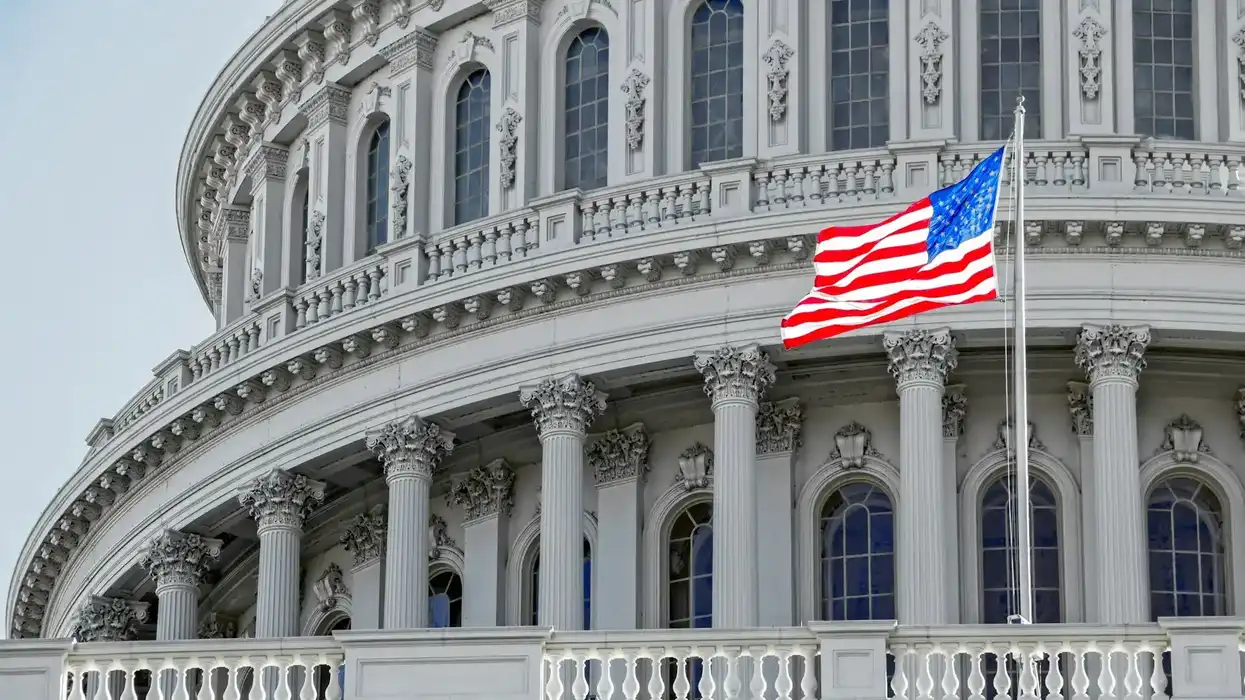There may be no greater indication that voters are not being listened to in the escalating redistricting war between the Republican and Democratic Parties than a new poll from NBC News that shows 8-in-10 Americans want the parties to stop.
It’s what they call an "80-20 issue," and yet neither party is standing up for the 80% as they prioritize control of Congress.
The NBC News poll, conducted from August 13 to September 1, surveyed respondents on a variety of topics, including President Donald Trump’s approval, the top issue for voters right now, and even what voters think about vaccines.
These things have been broadly covered in the press. But what has received less coverage now that the focus has shifted away from what is happening in Texas, California, Missouri, New York, and more is the threat mid-decade redistricting poses to voters.
The poll found that 82% of respondents said they want redistricting done by a nonpartisan commission, not the party in power. Even most members of the majority party in their state do not think politicians should be picking their voters.
 For example, 71% of Republicans in GOP-controlled states say they would prefer redistricting done by a nonpartisan commission. Yet in the same week as the poll’s release, Missouri’s Republican-majority advanced their own mid-decade gerrymander.
For example, 71% of Republicans in GOP-controlled states say they would prefer redistricting done by a nonpartisan commission. Yet in the same week as the poll’s release, Missouri’s Republican-majority advanced their own mid-decade gerrymander.
This, of course, follows a new map approved in Texas, which is ground zero for this tit-for-tat redistricting fight. Texas did it, so California did it. Missouri is doing it, so New York or Maryland or Illinois may do it.
And yet, 88% of Democrats in states controlled by their party also prefer a nonpartisan redistricting commission over legislative-drawn maps. The No on Prop 50 campaign in California sent out the NBC News poll results over email.
Proposition 50 will be on a November 4 special election ballot, where voters can approve or reject a new congressional map drawn by the legislature.
If approved, the map could give the Democratic Party over 90% representation in the state’s congressional delegation.
Those responsible for the proposition, including Governor Gavin Newsom, know how their voters feel about legislative gerrymandering. He says he wants to see independent redistricting commissions used at a national level but insists that his party must “fight fire with fire.”
- YouTube www.youtube.com
In fact, Proposition 50 includes a section in its summary that says it “[e]stablishes state policy supporting use of fair, independent, and nonpartisan redistricting commissions nationwide” – even as it will do exactly what most voters say they don’t want.
In other words, it will implement a partisan gerrymander approved by the Democratic majority in the legislature. It will sidestep the state’s independent redistricting commission, approved by voters in 2008 and 2010.
Prop 50 does not abolish the independent commission. It says the new congressional map will be in place until the commission redraws and approves new maps after the 2030 census. However, it is worth noting that this means 3 congressional election cycles under the new map.
Whether it is Texas or California, the question to ask is: What happens to the trust and confidence of the political minority when the majority says to them that on a whim, they will take away their opposition’s representation all but completely?
Texas’ maps will have to be struck down in court while California voters are left to wonder what happens the next time the Democratic majority decides they need to “fight fire with fire” again.
The answer to the question is: The partisan majority doesn’t care. When the system puts the self-serving interests of private political parties over meaningful and accountable representation, it all becomes a game to Republican and Democratic leaders.
“They did it, so we have to do it.” Then the other side will turn around and say, "They cheated first."
Even now, 82% of voters say they want politicians out of the business of choosing whose vote matters. Yet, Texas and California were only the beginning. More states are trying to expand the controlling party's majority in Congress or nullify the other side’s gains, completely ignoring what voters want.
Poll: 82% of Americans Want Redistricting Done by Independent Commission, Not Politicians was first published on IVN and re-published with permission.
Shawn Griffiths Is An Election Reform Expert And National Editor Of IVN.us.




















